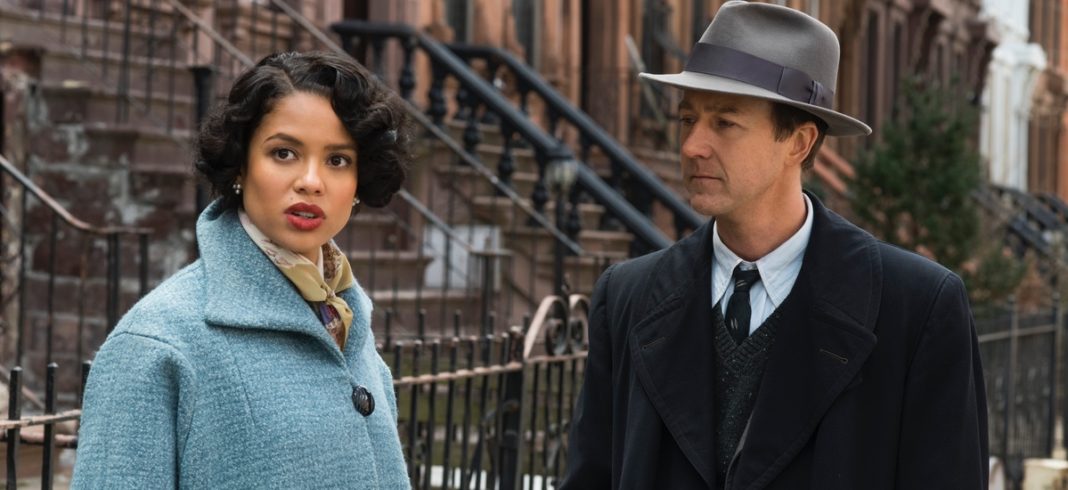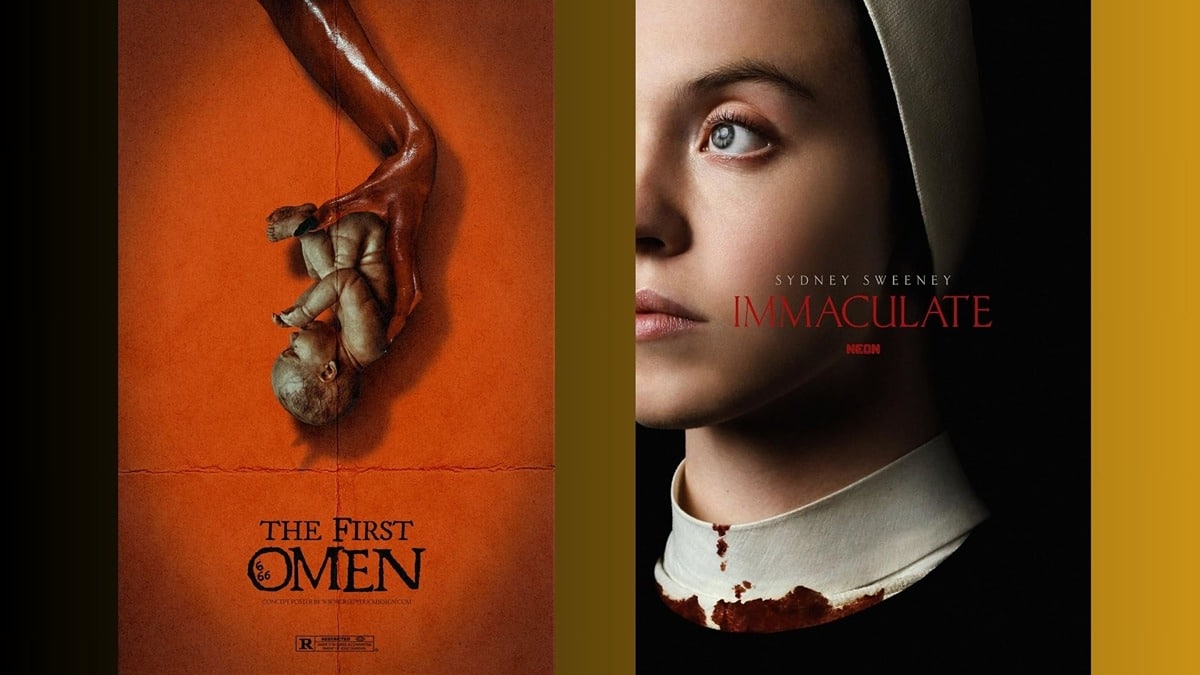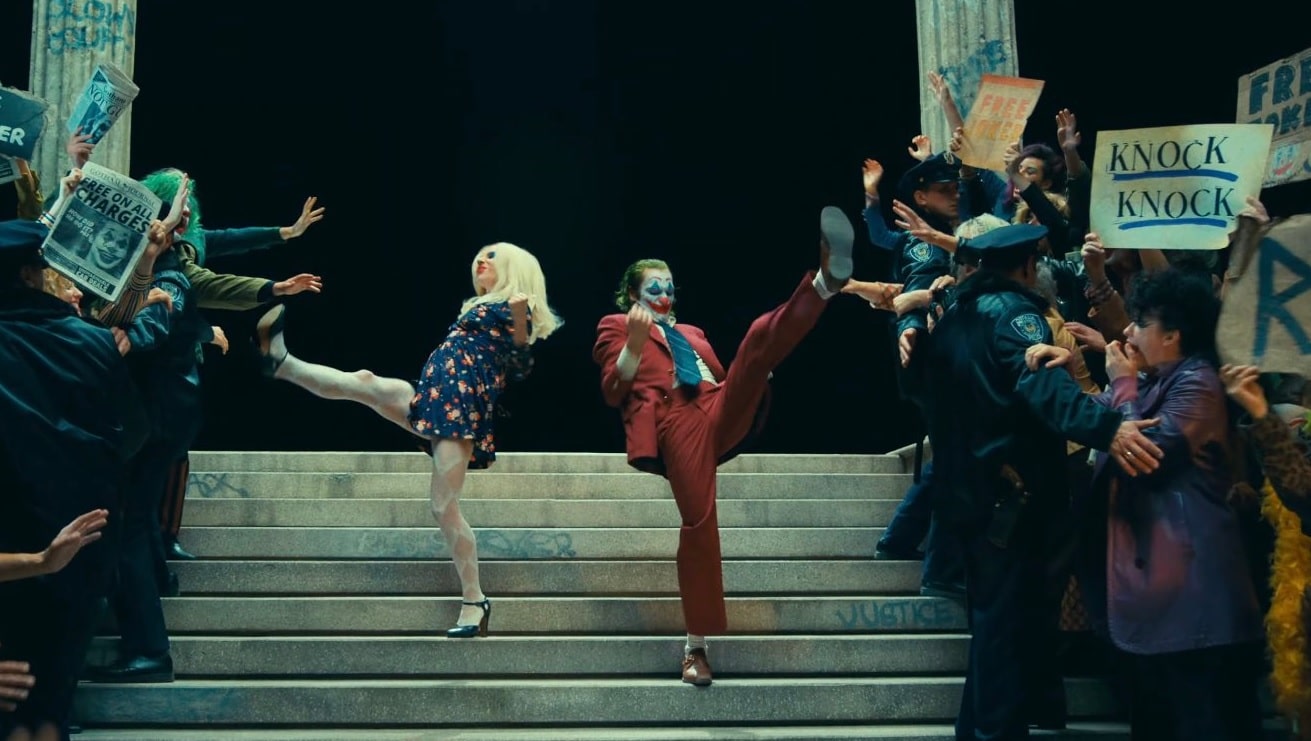It has been nineteen years since Edward Norton directed a movie (2000’s Keeping the Faith), but a lot of that time has been spent trying to adapt Jonathan Lethem’s Motherless Brooklyn into a feature film and getting that movie made.
In Motherless Brooklyn, Norton plays Lionel Essrog, a private investigator in 1950s New York whose mentor Frank Minna (Bruce Willis) has been murdered while working on a case. Lionel suffers from Tourette Syndrome, but he’s incredibly smart and able to remember anything he hears. With the help of his fellow investigators (Bobby Cannavale, Dallas Roberts, Ethan Supplee) and a Harlem-based lawyer named Laura Rose (Gugu Mbatha-Raw), Lionel follows the clues he finds to a powerful but corrupt land developer Moses Randolph (Alec Baldwin) and his brother Paul (Willem Dafoe), who can help Lionel get justice for Frank’s murder.
The Beat sat down with Norton at the New York junket for his second film as a director. As always, he proved to be a thoughtful and eloquent interview subject, even speaking about comparisons between his character Lionel and Joaquin Phoenix’s Arthur Fleck in Joker, as well as Forrest Gump.(As you can read from my review, I’m a fan of the film, its amazing cast and recreating New York City in the ‘50s, all of which we discussed, as well.)
The Beat: I’ve been tracking this movie probably since 2000 when New Line bought the rights to the book, which is a long time ago. The last few times we’ve spoken, you’re always talking about how you wanted to get it made. What finally happened that allow you to get it made after nearly twenty years?
Edward Norton: Well, writing it was complex because, with Jonathan’s blessing, I wanted to springboard off the novel and mash it up with some of these deeper looks at the deep, dark history of New York and all of that. It took a lot of research and just a lot of balancing, trying to figure out how to blend up a character journey story. It’s almost in the vein of movies I love, like Forrest Gump or Rain Man or Good Will Hunting. I think my initial impulse on the whole thing was these underdog stories, where when a character has a very memorable, heightened struggle, I think it engages empathy. We like to root for the underdog, and I think we feel good about ourselves when we root for the underdog in a weird way. Everyone else is treating him badly or underestimating him, but if we have an intimacy with what his secrets are, we’re going with him and wherever the plot takes us. The real emotional hook is that he’s navigating and going to come out on top.
A lot of it, for me, was figuring out, in a way, how to transpose what’s really great about the book, which is the way you’re inside his head, outside his head, but also the way that he has to grow up, the way that he has to go from being comfortable inside this bubble of protection that Minna gives him and then, when Minna’s gone, he essentially has to become Minna. He has to grow up and, despite his limitations, he’s got to step up and step into his mentor’s shoes. I like those kinds of stories fundamentally because, in a weird way… Have you watched Forrest Gump in a long time?
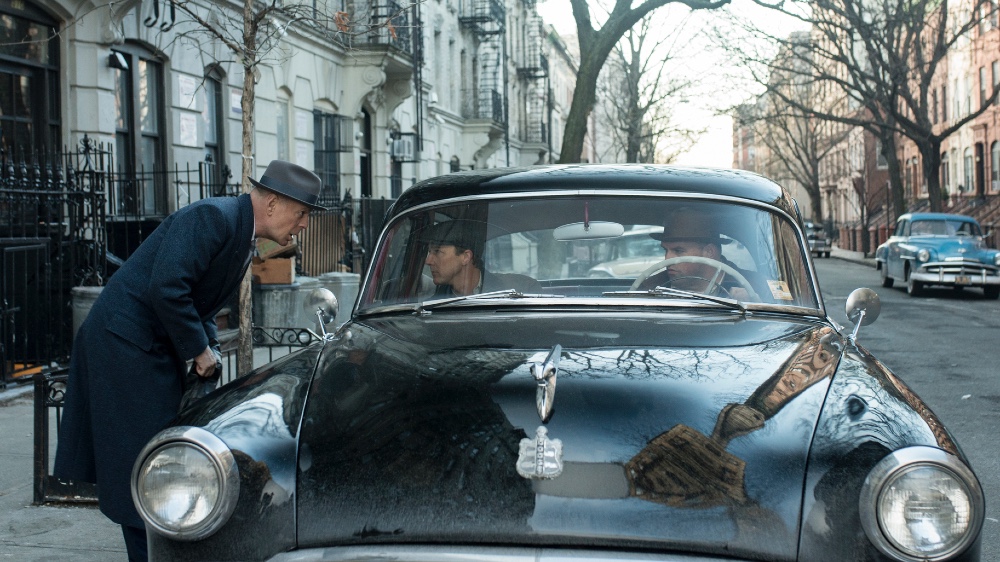
The Beat: Probably not in six or seven years maybe.
Norton: It’s unsurprising in the sense that Eric Roth is no lightweight writer. Eric is a really, really great writer, but you do forget, because we, in our reductive GIF world, you get “Life is like a box of chocolates” or “I’m not a smart man, but I know what love is.” Those things can have the effect on your brain of making you reduce that to the saccharine version of itself. When you watch that movie, you forget that it’s really about America dissolving into discord. It’s about Vietnam and it’s about race relations and racism and the girl he loves has been molested by her father and dies of AIDS, and you forget that it’s really about the assassinations of presidents. It’s about America losing its sense of care for each other. Of course, he doesn’t, and he’s written off as a fool, but he sustains the thing that everyone else is losing, which is just simple, straightforward care and love. I forgot how dark what’s going on around him is. Obviously, Lionel is secretly brilliant, and in a way, that’s the opposite, but I felt that those movies reminded me that you can take people on a drift if they engage and feel empathetic toward a character. [Lionel] is unique and they enjoy just the simple fact of what he has to go through to navigate his unique issue. You can take people for a ride. He can become the vehicle that lets you go into this exploration of a shadow narrative.
The Beat: I like how sympathetic you make Lionel as a character, and yet, he’s also incredibly smart. I’m not sure if Tourette’s Syndrome had even been diagnosed back then.
Norton: It was certainly not popular or widely-known.
The Beat: Did you do some studying to make sure you were being respectable to that aspect of the character?
Norton: The good thing about Tourette’s, from a research point of view or a performance point of view, is that it’s wildly individualistic. Nobody has the same version of it, right? Understanding, in a way, the menu of the component parts that can express themselves in people and then being able to shape his unique version of it was very, not nerve-racking, it was cool. Literally, I remember seeing interviews with the basketball player, Chris Jackson, about his obsession with something, his free throws had to sound right going through the net or he couldn’t stop practicing them. I poached the idea that he can’t stop doing something until it sounds right. Or the vocal component. There’s a documentary about people with Tourette’s where this one woman talks about how she was fixated on the same word for seven years and then the word changed.
Lionel’s repetition of the word “If.” I said, “Oh, I like that idea that, amongst his other things that are responsive to things people say, he’s got one core thing that he’s saying over and over.” It’s like you start to understand the mélange of ways and then you craft his unique version of it. It’s a completely fascinating condition, because not everybody has the obsessive compulsive component of it as well.
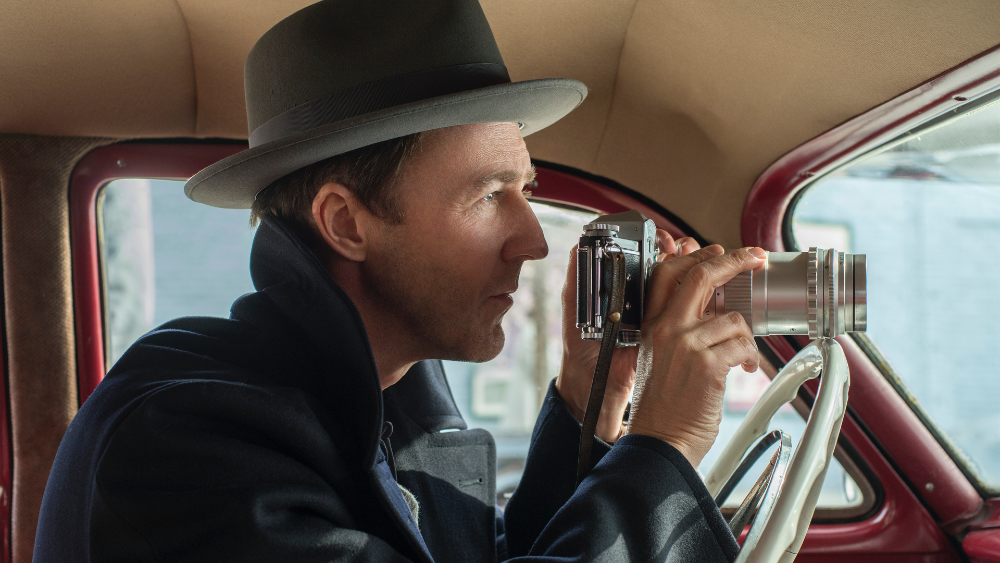
I would say one of the things that’s very authentic is that many people say there are components of the condition that give them either a certain kind of creative capacity or focus or that there are things they leverage into a strength about it. Robin Williams introduced me to a friend of his who had a fairly pronounced Tourette’s, vocally and physically, but he was a sculptor, and he said that the interplay between his impulsiveness and the chaotic things was part of his work.
The Beat: I actually saw your movie back-to-back with Joker. I don’t know if you’ve seen it yet, but his character has a condition as well, but it’s not as sympathetic a character. I’ll be curious to know what you think of it.
Norton: There’s an interesting thing about that. One of the things that’s really wild about Joker is that I felt, watching it, it’s almost like there’s a certain yin and yang with Motherless Brooklyn in the sense that there’s a character who, with his condition, he engenders your empathy. I think it’s one of the things that’s really wild about that film is how much empathy you feel for him and the unkindness of the world in its treatment of him.
Now, of course, he essentially goes and uses that empathy to create a very disconcerting sensation in the end, because what he does is descend in a way. My thought was that Lionel is a person who’s been mistreated and that his isolation is something that he’s used as a rationale to not engage positively with the world. By the end, when Laura says to him, “I hear you, but we all got problems.” She’s a black woman in 1957. She’s lawyer, but people think she’s a secretary. I feel like she’s the first person who goes, “Yeah, we all got stuff we’re struggling with, but do you care about other stuff or not?” I think he witnesses the fact that she’s actually a good person. She’s biting, she’s not getting confined by her own struggles, and I wanted to take it to a different place. By the end, he’s saying that Frank wasn’t a crusader, he was really after a buck. By the end, his view of what is heroic has shifted and I think he’s come around to feeling like, “I don’t get to sit next to her if I’m just going to complain about my life. I only get to sit next to her if I act, if I try to be a part of taking down these brutal expressions of power,” and she gets him off the fence in a way. It’s not a qualitative, I’m just saying there’s a way of going, out of empathy, can you inspire people to say, “Geez, maybe there’s a way, even in your own struggles to rise and do more, as opposed to blow people away?”
The Beat: I’m glad you mentioned Gugu, because this film is really an abundance of riches as far as your cast. You have some of my favorite actors like Bobby Cannavale, Josh Pais and Dallas Roberts playing characters who are part of Lionel’s journey, and I was trying to figure out which of them you may have worked with before.
Norton: Almost all of them. Dallas Roberts and I did Burn This on stage with Catherine Keener and Ty Burrell before he was on Modern Family. Josh Pais, he was in Leaves of Grass–remember, he was the orthodontist. With the exception of Gugu, who is my import from England and I can talk about separately, literally everyone in this film is someone I had a pretty long relationship with, mostly from theater in New York, or who is themselves kind of a New York theater, even Bruce [Willis].
Bruce used to tend bar at Bar Centrale on the Upper West Side and did plays in New York, but certainly Willem and Alec and Bobby, Cherry Jones, Josh, Dallas, the guy who plays the mayor, Peter Lewis, I did plays with him on West 29th Street when I was 24. The large bulk of people in this cast are people I have known and worked with in some dimension for a long time. I’m not saying this for extra credit. I’m just saying the reality of this film was … it’s like if you’re Martin [Scorsese] and you can get 200 million from Netflix to do a period film with all your friends and get everybody paid, that’s great, as can Quentin [Tarantino] and that movie cost $95 million. If anybody’s earned it, Quentin’s earned it, and those guys have earned it, but I wanted to make a big, epic, period, American old-fashioned film and I had to do it for 26 million.
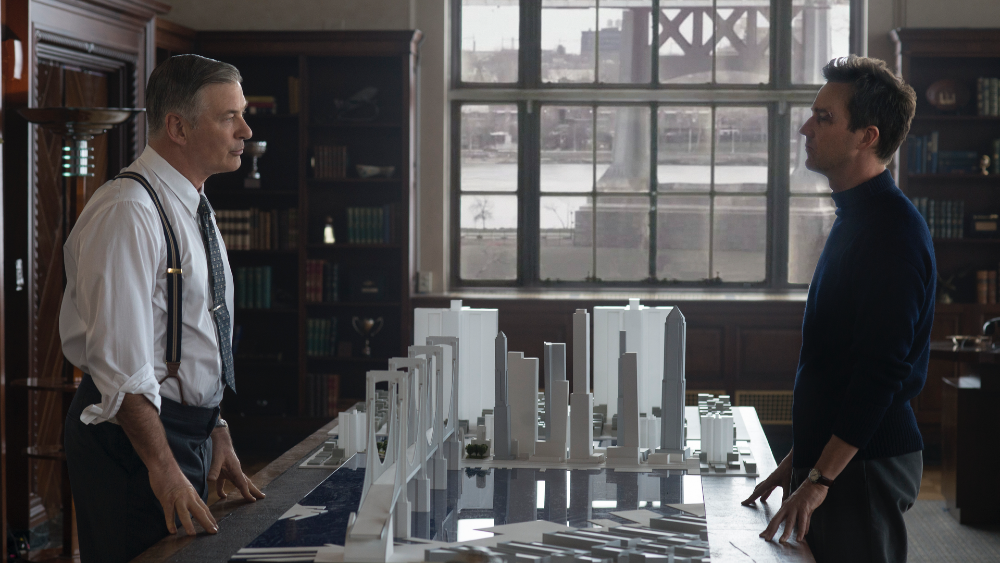
Everyone, Bruce Willis on down, did the movie essentially for scale, everyone, and Alec and Bruce literally did it for almost nothing. They were responsive, and they were supportive of me. Willem has lived in New York even longer than me, and he has a really keen sense of the social justice of it. I think in terms of almost all of my tribe of actors, rallying around me to help me get it done, I could not have made the movie for the numbers we made it for. We had a 46-day shoot to make the movie, and I couldn’t have done it without people being willing to do that and theater-experienced actors, because I needed people to come ready fully, as if a play, with big pieces of weighty text. Alec did that scene at the pool in the end in two or three takes. He did it like a Shakespearean actor coming in to perform. and he just drove through it. It was wonderful the way people stepped to this for me.
The Beat: What about creating New York City in the 50s, because there really isn’t much left of that New York City anymore?
Norton: New York’s incredible. It’s still, for all the destruction and change and all of it, there’s are still vibrant threads of the past. It’s like some sort of cliff where there’s a vein of the fifties still running through New York, and you just have to go on a treasure hunt to find it.
The Beat: I live on the Lower East Side in one of those tenement apartments where I don’t have a shower. Just a bathtub with legs.
Norton: I literally said the other day that in the last 10 years, I don’t think any neighborhood on Manhattan has changed more than the Lower East Side. It’s transformed, the luxury condos, the Whole Foods. It’s really rather incredible the change that’s gone on. I madeThe Illusionistwith Dick Pope, which he shot in 40 days and was nominated for, and he’s made four or five period films with Mike Leigh that were the most beautifully shot films, Mr. Turner, which he got nominated for, and Topsy-Turvyand Vera Drake.
I remember seeing those films, and especially Mr. Turner, because we were on the awards circuit for Birdman, and he was nominated for that. I even called other filmmakers and said, “Have you seen this film? What do you think that was shot on?” and everyone was like, “Super 35. You can’t get that kind of thing …” I saw Dick and said, “God, you got to shoot it on 35,” and he goes, “No, no, I shot on the Lexar.” I remember thinking that if he shot that movie in what I know Mike’s schedules are, and I said, “I can’t do this without you. I need your capacity to shoot period without baloney, patina, or imposition of grain, and I need to do it on a schedule,” and he was like, again, an MVP. I think he’s one of the great living … Roger Deakins calls Dick one of the great living cinematographers, and I think he’s somewhat underappreciated, but he works at a pace that I needed.
Beth Mickle, the production designer, and this guy, Mark Russell, the visual effects supervisor… you don’t really notice, but there’s so much money for visual effects here. The success of something complex like de-aging actors still has a ways to go, but there’s 683 effects shots in Motherless Brooklyn. There’s big stuff like the Penn Station [scene], and then there’s a million little things, but nobody’s asking about that. That’s what you want. You don’t want people leaning into that. The best comment I got on that that made me the happiest was another production designer said to me, “What did you do to create Penn Station? Did you go to Budapest?” and I said, “No, it’s all visual effects.”
Motherless Brooklyn opens nationwide on Friday. You can read The Beat’s previous interview with Willem Dafoe here and look for our interview with Gugu Mbatha-Raw later this week.


